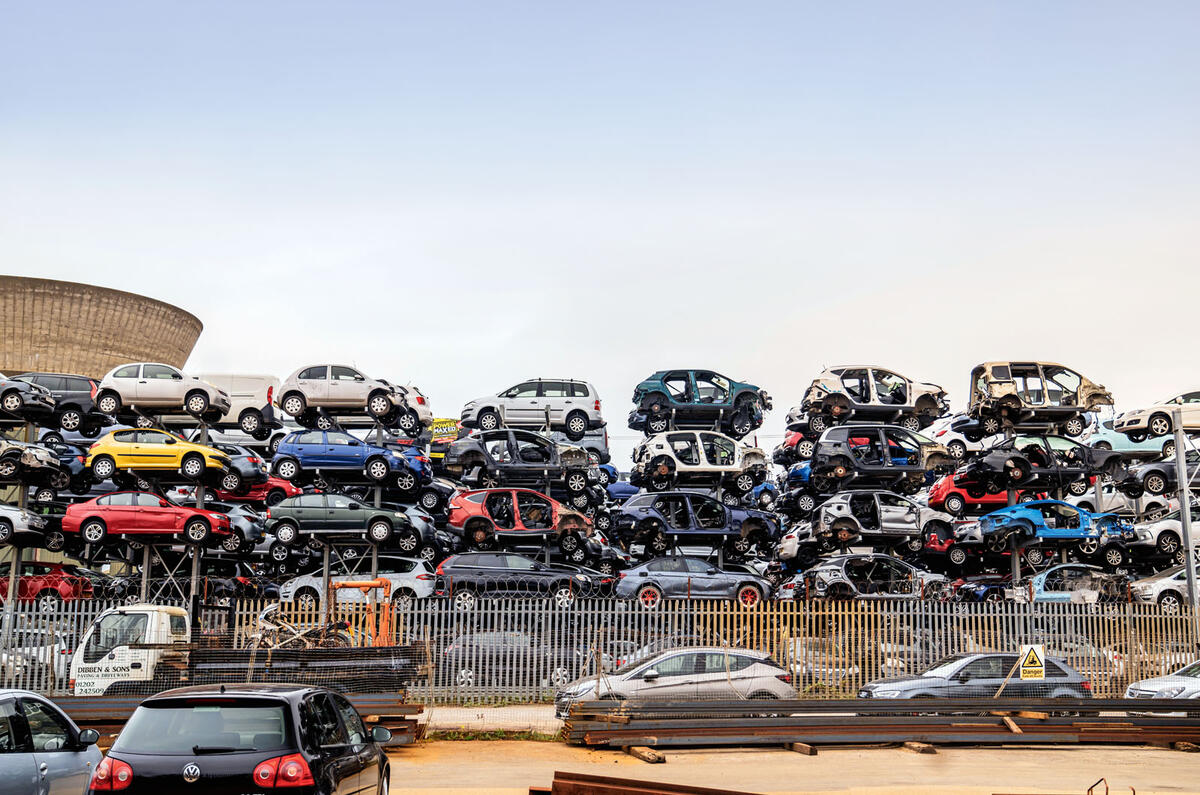'Deproduction’ sounds like a mis-spelling in a biology lesson, but it’s what one vehicle salvaging company has started doing in Poole, Dorset.
Think of it as car production in reverse. Mounted on wheeled carriers, end-of-life cars travel along steel tracks, pausing at a series of four work stations where technicians dismantle them, placing their components in large hoppers. These are then wheeled to another area, where they’re checked, catalogued, cleaned and photographed prior to being sold to bodyshops, garages and the public.




Add your comment